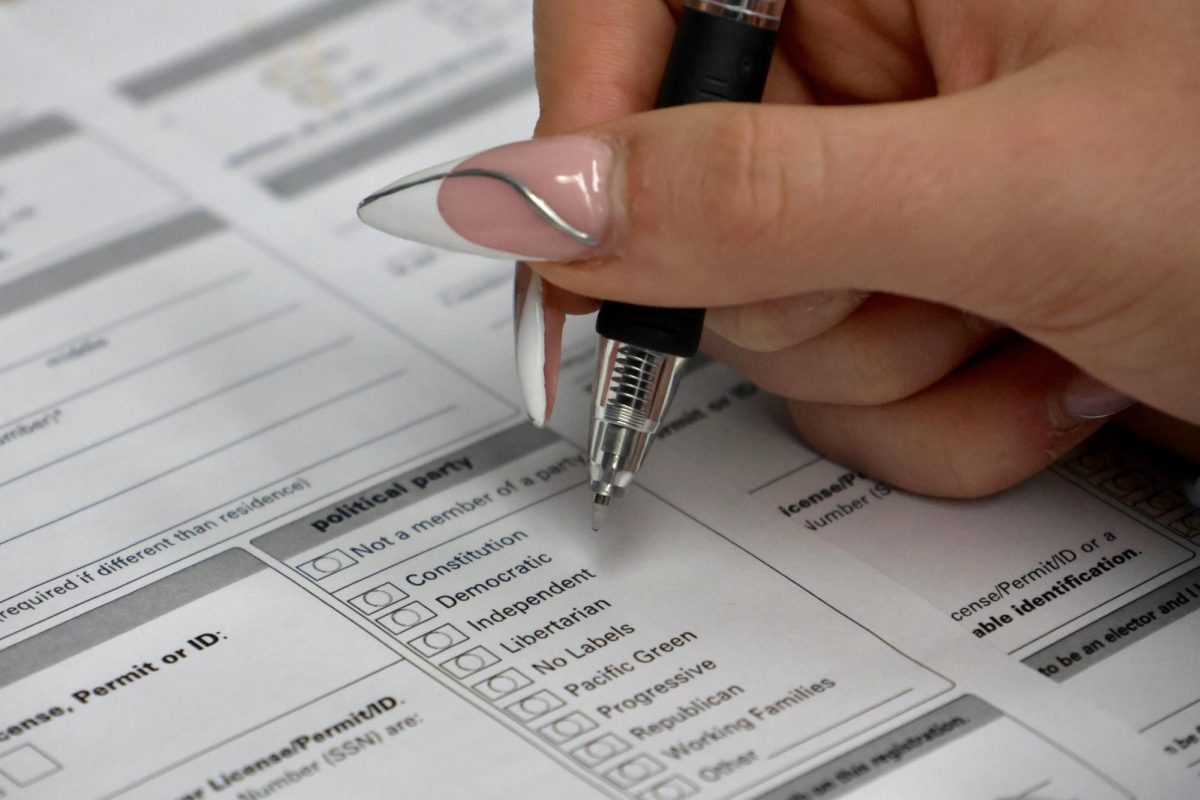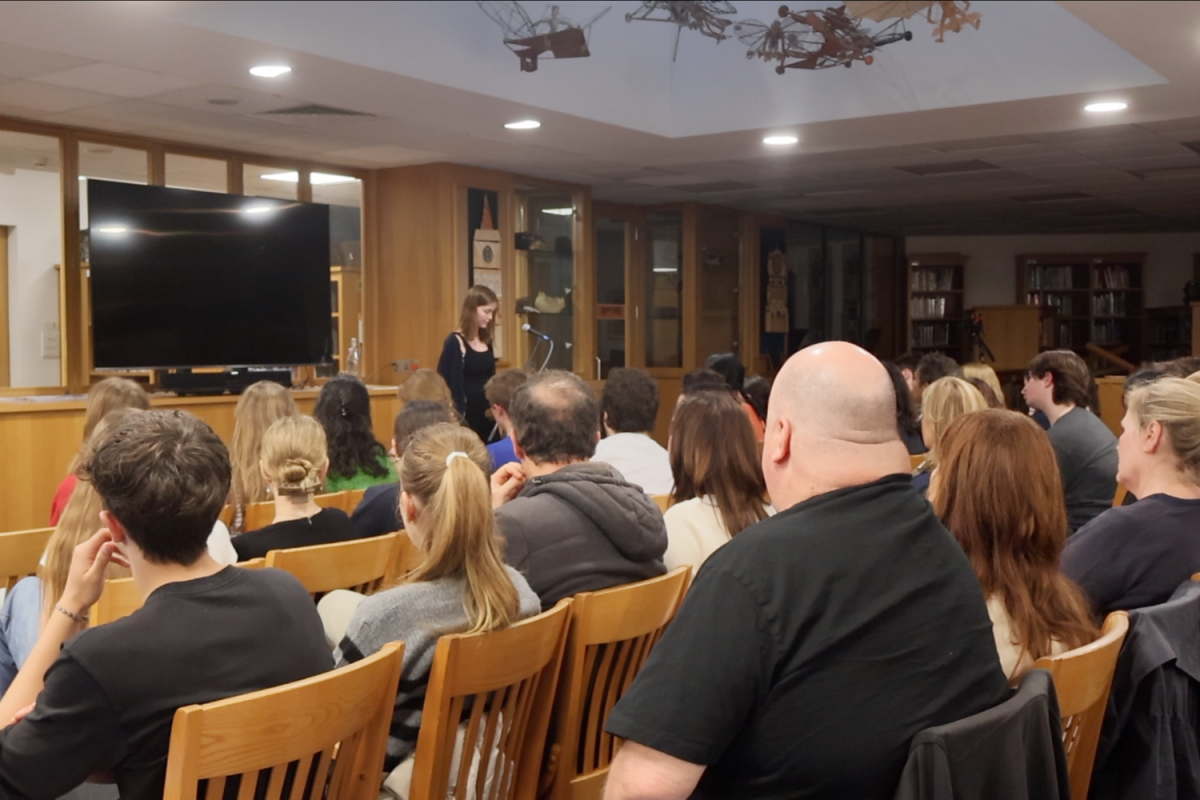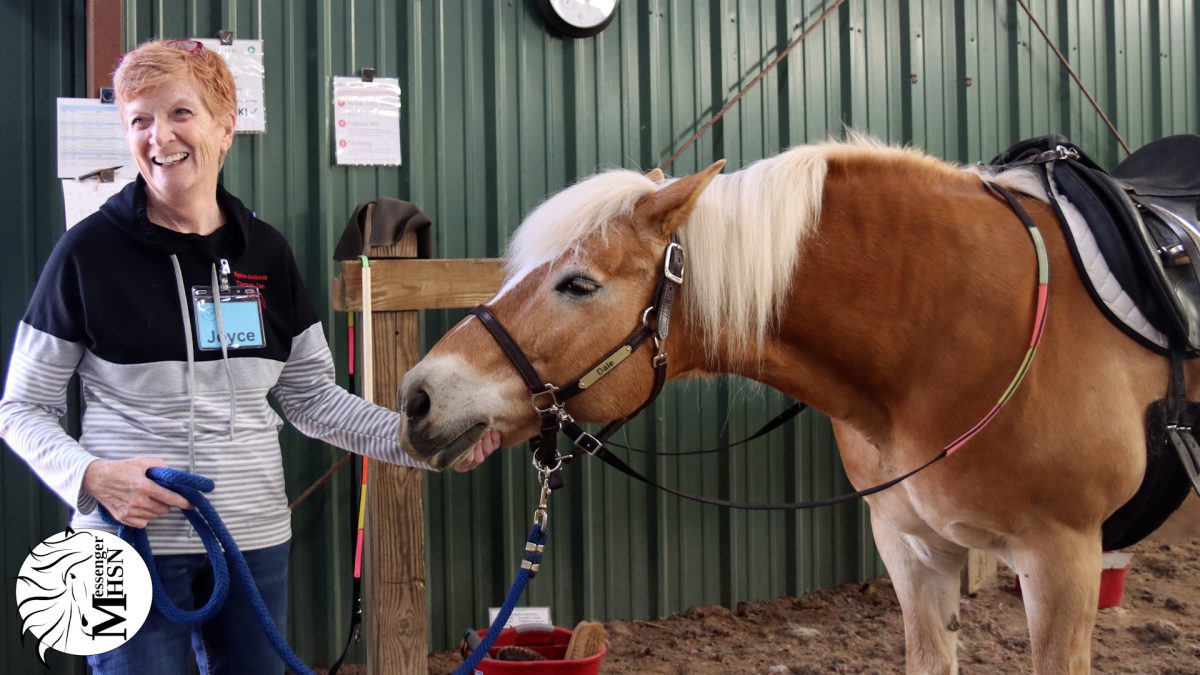After four years of hiatus, the Miss McHenry scholarship pageant has returned to the community with the goal of being more inclusive than ever. Its rules and requirements, however, leave many feeling left out, discouraged, and excluded, and with answers from higher-ups lacking, it is possible this issue is rooted even deeper than just in a county pageant.
The Miss McHenry scholarship pageant is a 70+ year old tradition that just recently came back from an extended break caused by COVID-19. The winner of the competition receives a 2000 dollar academic scholarship, sash, crown, and is expected to compete in the larger Miss McHenry *County* pageant (not to be confused with the former).
This year, pageant director Danielle Badgley has named “inclusivity” as its number one goal, hoping to include anyone and everyone who wishes to participate in the pageant as it makes its return.
“We really want to include everyone who wants to participate,” said Badgley. “We don’t wanna turn away anybody that wants to be involved in something like Miss McHenry.”
However, the requirements to participate, as laid out in the application, leave much to be desired in the way of inclusion. Numerous rules within have led would-be contestants and would-be sponsors alike to turn away from the pageant.
For one, many familial restrictions have rubbed people the wrong way. Contestants are not allowed to be married, previously annulled, divorced, or have children. Some have labeled this rule as regressive and unfair in the current age.
“I think the message they’re trying to send with that is a bit outdated,” said an MCHS student, considering applying for Miss McHenry, who wished to remain anonymous. “I think that requirement is kind of the one that set me off.”
As well, contestants are not allowed to bring any family, friends, or otherwise to the competition. If they win, Miss McHenry is expected to attend social events with her crown and sash, and the same rules apply.
“It’s more for their protection,” said Badgley. “When you have that emotional relationship, you know, if it’s your daughter or significant other…it’s more for their security, because things can get heated sometimes and we just want to have an impartial person there—somebody that’s not gonna get over emotional or over involved if something were to happen.”
Rules regarding fashion for the competition have also been a big reason for lacking applicants. Notably, contestants can not have tattoos, and are expected to cover them up with makeup if they do have them. Certain jewelry and clothes are prohibited, as well as (this is a direct quote from the rules) “extreme cleavage.”
“Their whole image is to empower women” said the potential applicant, “but at the same time you’re telling them to … remove something from their bodies. Girls just have cleavage. There’s nothing they can do about that, and that kind of makes me sad that that is even included in the rule book.”
When asked about this, Badgley claimed that beauty and looks really has nothing to do with someone’s chances in Miss McHenry.
“It’s a scholarship pageant, not a beauty pageant,” said Badgley.
Like all controversies, Miss McHenry’s rules come with nuances. While many of the rules included do feel restrictive or controlling in a way, it is important to understand that a lot of them are normal for pageants.
“Most pageant rules are that way,” said the potential applicant. “I just thought Miss McHenry was gonna be different.”
Additionally, it is important to note that these regulations are enforced by the state pageant competitions, not by Miss McHenry itself, and for Miss McHenry to happen, they have to play along. During her interview, Director Badgley was unable to explain why many rules were in place, making it apparent that Miss McHenry’s problems are rooted far deeper than just in a small-town pageant.
The most glaring problem in the rules for Miss McHenry is that trans women are not allowed to participate. This demonstrates the prejudice and outdatedness of the rules most apparently, as larger pageants like Miss America and Miss Universe have allowed trans women as early as 2018– far before Miss McHenry’s hiatus.
When asked to clarify this rule’s inclusion, Badgley was unable to provide an answer.
“Miss McHenry has always been with, you know, female contestants.” said Badgley. “I think that’s just something that has historically been that way. Again, I don’t come up with the rules, we just have to follow them in order to participate in Miss McHenry County. I’m not sure…if that’s something they’re looking into changing to grow with how things are changing in America in general and I don’t know how the rules are formed.”
Despite the clear issues and hard restrictions that keep specific groups of students such as trans women out of the competition, Badgley is unsure why anyone would think Miss McHenry is exclusive.
“As far as ‘restrictive’ I guess I just wanna know what they think or what parts of the application they feel are restrictive,” said Badgley. “It’s something that is a positive experience and that people benefit from.”
It is important to understand that Miss McHenry is not being criticized for being a negative experience, but for its lack of progressiveness. The opportunity to compete, be on stage and the camaraderie contestants will have with each other is not lost on Miss McHenry prospects.
“The reason I wanted to join Miss McHenry is because I’m in theater,” said the potential applicant. “You’re putting on a character—an over-dramatised version of yourself, and I think that’s really fun…I want to dress up in a pretty dress and be up there and it’s just the fact that Miss McHenry is about promoting women. I really like that.”
Additionally, changes do not happen overnight. Some believe it will take a younger crowd to make the changes in the way of inclusivity.
“Miss McHenry is trying its best,” said the potential applicant. “But it is run by higher ups (and) older people that don’t really understand the youth. If we were actually going to make a change in Miss McHenry, we would have to have it be run by younger people.”
Miss McHenry can undoubtedly be a positive experience for young women, but unfortunately not everyone is allowed to participate as Miss McHenry would like you to believe. That being said, with the pageant facing a lack of applicants, it seems that many are not believing the “inclusive” image anyway. Hopefully, this will lead to change come next year allowing for more young women to take advantage of the opportunity.
This story was originally published on The McHenry Messenger on April 11, 2024.





![With the AISD rank and GPA discrepancies, some students had significant changes to their stats. College and career counselor Camille Nix worked with students to appeal their college decisions if they got rejected from schools depending on their previous stats before getting updated. Students worked with Nix to update schools on their new stats in order to fully get their appropriate decisions. “Those who already were accepted [won’t be affected], but it could factor in if a student appeals their initial decision,” Principal Andy Baxa said.](https://bestofsno.com/wp-content/uploads/2024/05/53674616658_18d367e00f_o-1200x676.jpg)






![Junior Mia Milicevic practices her forehand at tennis practice with the WJ girls tennis team. “Sometimes I don’t like [tennis] because you’re alone but most of the time, I do like it for that reason because it really is just you out there. I do experience being part of a team at WJ but in tournaments and when I’m playing outside of school, I like that rush when I win a point because I did it all by myself, Milicevic said. (Courtesy Mia Milicevic)](https://bestofsno.com/wp-content/uploads/2024/06/c54807e1-6ab6-4b0b-9c65-bfa256bc7587.jpg)








![The Jaguar student section sits down while the girls basketball team plays in the Great Eight game at the Denver Coliseum against Valor Christian High School Feb. 29. Many students who participated in the boys basketball student section prior to the girls basketball game left before half-time. I think it [the student section] plays a huge role because we actually had a decent crowd at a ranch game. I think that was the only time we had like a student section. And the energy was just awesome, varsity pointing and shooting guard Brooke Harding ‘25 said. I dont expect much from them [the Golden Boys] at all. But the fact that they left at the Elite Eight game when they were already there is honestly mind blowing to me.](https://bestofsno.com/wp-content/uploads/2024/05/IMG_7517-e1716250578550-900x1200.jpeg)









![BACKGROUND IN THE BUSINESS: Dressed by junior designer Kaitlyn Gerrie, senior Chamila Muñoz took to the “Dreamland” runway this past weekend. While it was her first time participating in the McCallum fashion show, Muñoz isn’t new to the modeling world.
I modeled here and there when I was a lot younger, maybe five or six [years old] for some jewelry brands and small businesses, but not much in recent years,” Muñoz said.
Muñoz had hoped to participate in last year’s show but couldn’t due to scheduling conflicts. For her senior year, though, she couldn’t let the opportunity pass her by.
“It’s [modeling] something I haven’t done in a while so I was excited to step out of my comfort zone in a way,” Muñoz said. “I always love trying new things and being able to show off designs of my schoolmates is such an honor.”
The preparation process for the show was hectic, leaving the final reveal of Gerrie’s design until days before the show, but the moment Muñoz tried on the outfit, all the stress for both designer and model melted away.
“I didn’t get to try on my outfit until the day before, but the look on Kaitlyn’s face when she saw what she had worked so hard to make actually on a model was just so special,” Muñoz said. “I know it meant so much to her. But then she handed me a blindfold and told me I’d be walking with it on, so that was pretty wild.”
Caption by Francie Wilhelm.](https://bestofsno.com/wp-content/uploads/2024/05/53535098892_130167352f_o-1200x800.jpg)








